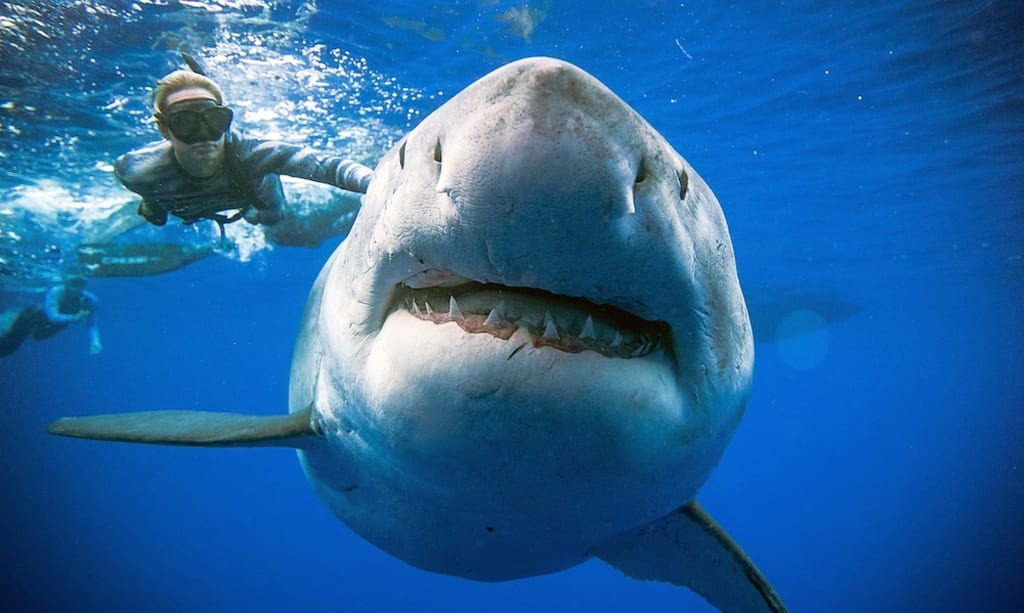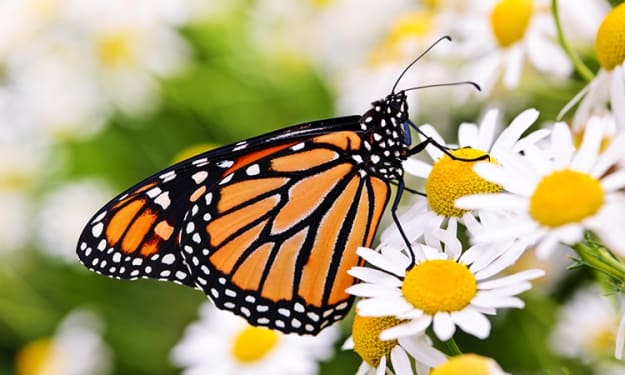Ocean Ramsey and the Endangerment of Pregnant Sharks
A well-known Hawaii based diver shop keeper, model, and activist recently had an encounter with a pregnant female great white shark off the coast of Oahu that many marine biologists are saying is regarded as a sneaky form of harassment.

On January 15th, 2018, Ocean Ramsey, a scuba shop keeper, model, shark conservation activist, and self-proclaimed marine biologist had a close encounter with a pregnant great white shark off the coast of Hawaii after she had just started feeding on the carcass of a sperm whale. As the story goes in regards to Ocean’s encounter with the 20-foot shark, Ocean, and her staff were spending the day observing tiger sharks when the animal appeared, along with a pod of dolphins that accompanied her. From there, Ocean began to swim close to her which led to the interaction between her and the shark that involved her petting the animal, and even riding on the animal’s dorsal fin. While there is no argument that Ocean had a beautiful experience with the shark, it was also a dangerous one as well.
While some people may argue about the animal not being harmed by the experience, it’s probably because they do not completely understand the life history of the great white shark, to begin with. For example, female sharks only give birth once every three years. However, because this process is taxing on so many levels, some animals may sometimes skip the breeding process. So, when a shark does become pregnant, they will feed their 500 pounds of developing pups in their uteri before giving birth around April. On America’s Pacific coast alone, great white sharks will spend almost their entire 18-month gestation period in the deep offshore waters between Hawaii and the North American mainland. Since great white sharks prefer to feed on marine mammals, it’s possible that the sperm whale carcass may have served this shark a good caloric intake that her growing pups would need to be carried to term. Harassing a pregnant shark while she is trying to feed could cause her to leave the meal behind, which would then, impact her ability to be able to carry a healthy pregnancy to term, or even reproduce during the next breeding season.
The great white shark in Hawaii turns out to not be Ocean’s first encounter that has raised a lot of eyebrows. Several years ago, Ocean first entered the social media community when she first took the world by storm when she posted video and photos of herself riding white sharks off Mexico’s Guadalupe Island, where it is illegal to do so. World over, riding on a shark during a dive expedition is considered to be one of the most unethical practices in the business and not even Georgia Aquarium allows it’s guests who take part in its diving programs to ride on its whale sharks.
The number one golden rule of legitimate shark diving businesses is to not touch the sharks. Ocean’s risky interaction with a pregnant shark by riding on her should not be seen as a form of advocacy for wild sharks since its just a model who just happens to be a business owner who is breaking wildlife ethics as a form of selfishness, and self-promotion. She is an example of the fact that posting selfies with animals out in the wild, whether it’s a shark, a bear, a lion, or a crocodile could end up sending the wrong message about these dangerous animals. Yes, while Ocean was lucky to be in a situation where the shark was unlikely to either bite her or mistaken her for a marine mammal, the average person needs to know that when they are viewing marine wildlife out in the ocean, they should not expect to get in the water for the sake of seeking a ride from a shark. The best way for diving groups to be able to view sharks in their underwater habitat is to observe them from distance that would not result in the animals getting harassed by people.
What can you do?
- When observing animals in their natural habitat, please keep your distance from them. That way, you are not invasive to them in any shape or form.
- Never, ever touch a wild animal.
- If you see anyone attempting to harass animal out in the wild, please report it to wildlife officials.
- Never make any attempts to feed a wild animal since that can desensitize them to humans and they may stop hunting for their own prey.
- If you see a sick, orphaned, or injured animal, please report it to wildlife officials. Be sure you give them the name of the species and the exact location it was found.
- If you are in the water with wild marine mammals, never separate mothers from their calves.
- If you are planning to take part in snorkeling, or scuba diving tours, be sure you first educate yourself about the species you are expecting to encounter during your tour. This does include the various shark species that are found in many popular diving spots.
Too many encounters with wildlife have often ended in tragedy, so, take precaution will ensure that an adventure of a lifetime will end on both a safe and a memorable note for both people and wildlife alike. While there is no arguing that Ocean is very passionate about sharks and wants to inspire people to get to know and love these misunderstood animals, there are limits on how that can be presented in a wild setting. Especially when there are risks involved.
About the Creator
Jenna Deedy
Zoo and Aquarium Professional, Educator, Cosplayer, Writer and B.A. in Psychology whose got a lot to share when it comes to animals, zoos, aquariums, conservation, and more.
Instagram: @jennacostadeedy






Comments
There are no comments for this story
Be the first to respond and start the conversation.